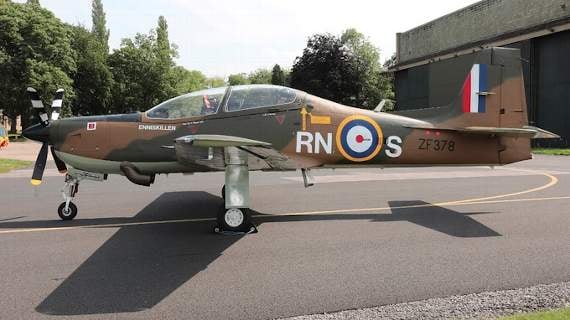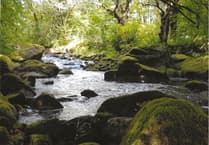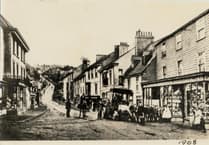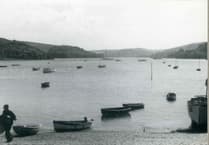Four ‘spitfires’ performed a roaring flypast in honour of late West Charleton resident Amos ‘Bill’ Smith as part of their centenary celebrations.
One of the four Tucano planes, used as training planes for pilots who will go on to fly fighter jets at 72 Squadron, was painted in traditional Spitfire livery for the flypast on Tuesday, June 27.
72 Squadron performed the flypast to celebrate 100 years of their existence. They used Tucanos due to the very limited number of flying Spitfires left in existence.
Starting at RNAS Culdrose in Cornwall, the flypast took in places linked to surviving Second World War RAF servicemen and important RAF bases across the country, ending at JHFS Aldergrove in Northern Ireland.
Bill Smith was RAF ground crew based at Biggin Hill, Kent, during the war and The Blitz, sadly, he passed away in September five years ago.
His family contacted the Spitfire Society to let them know of his passing, but they didn’t pass on the information to 72 Squadron, so they were under the impression that he was still alive. When they found out he has died, they continued with their plan to incorporate West Charleton into the event in his memory.
Graham Smith, Bill’s son, who owns the laundrette in Kingsbridge, said that they weren’t aware of the plans until Rex Brown of Kingsbridge Royal British Legion got in contact with them.
In a convoluted story, Rex heard about the plans for the flypast when his wife was talking to the local vicar, Revd Pam Kemp, who said she was trying to trace Amos Smith for 72 Squadron, but couldn’t track him down. Rex recognised that although Bill’s legal name was Amos, no one knew him by that and only by his middle name, Bill.
Rex then contacted Graham and his sister Sally Bing. Sally said: “Watching the flypast was extremely emotional, we grew up in Kent, near Biggin Hill, and Dad always took us to the local airshows. As soon as we heard that noise, it takes you right back to being eight again.
“Just to see them was surreal, especially as they were there just for him. We expected one or two people to be there, but half the village turned out. He would have been so proud. He kept in contact with the Squadron and the people, it was a big part of his life all the way through until he died.”
Graham, Sally, their children and grandchildren attended the flypast near the church in West Charleton where people came armed with Union Jack flags and cheered as the planes flew overhead.
Asked about whether Bill had spoken about his time in the RAF, Graham said: “He told us about the planes coming back battered and they had to work on turning them round to send back out again. He told us a lot of the high jinks that went on, something familiar to anyone who served in the forces.
“Health and Safety wasn’t a thing then either, he said he went deaf because he used to sit on the back of the tail to weigh it down so it didn’t move about when they ran the engines up to test them.”
Graham and Sally both said it was a “bolt out of the blue” to learn about the flypast and that it was “so nice of them to do it” and “a really nice touch”.
Bill became the head chef at Britannia Royal Naval College in Dartmouth, and was active in the local community, being on the parish council and working as a playtime assistant at the local primary school for many years.
A video of the planes passing over West Charleton is available below, courtesy of Peter Smith. You can find out more about 72 Squadron on their website: www.raf.mod.uk/organisation/72Squadron.cfm





Comments
This article has no comments yet. Be the first to leave a comment.